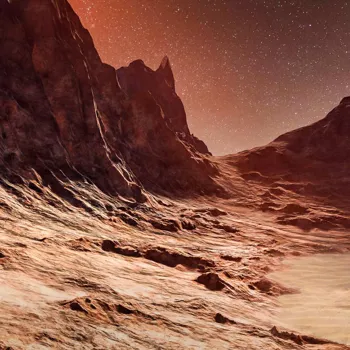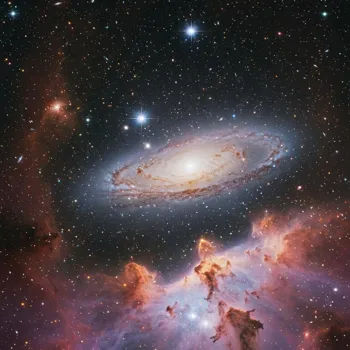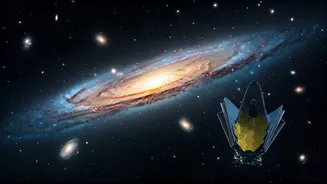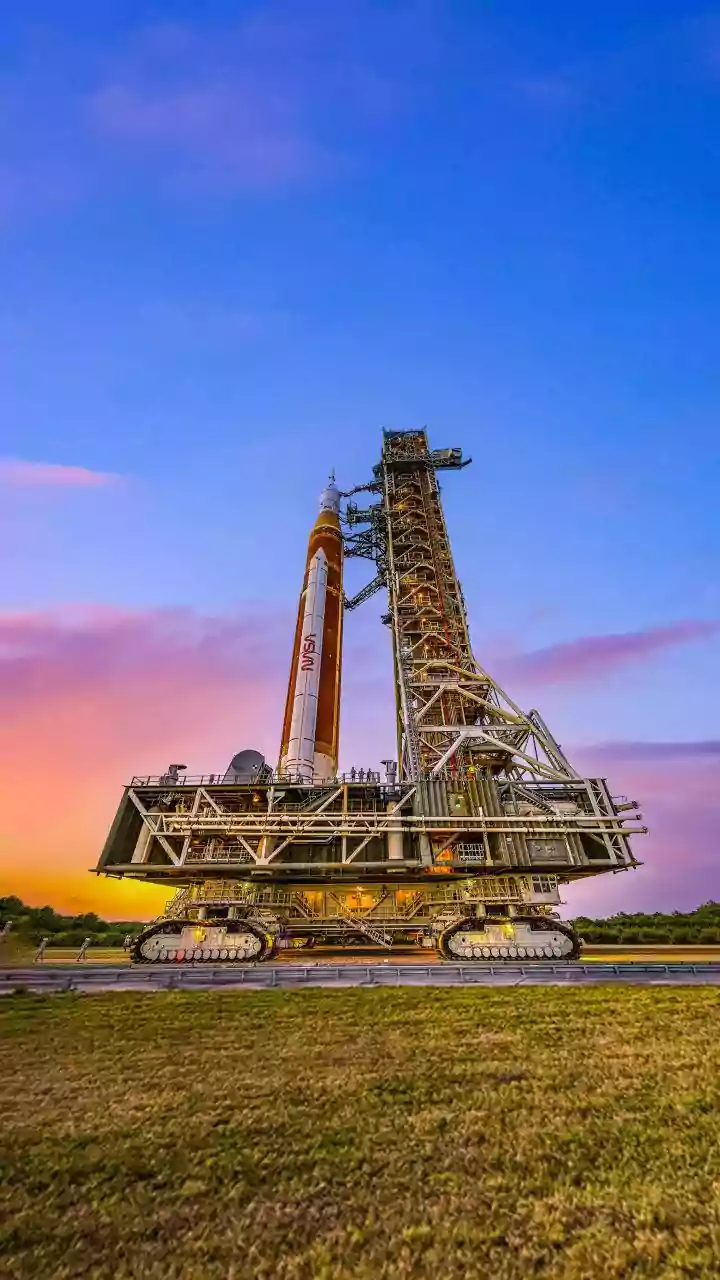Delve into Astrobiology: Exploring Life Beyond Earth. Uncover the mysteries of the cosmos and our place in it. Read on!
For ages, man has gazed at the stars, wondering if we are alone in this vast universe.
This very question fuels the exciting field of astrobiology.

This isn't just about little green men; it's about understanding the fundamental conditions that make life possible and searching for those conditions beyond Earth.
A team of scientists in India is closely following global developments in astrobiology, contributing to the ever-growing body of knowledge. They believe it's only a matter of time before exciting discoveries are made.
Experts at ISRO remain optimistic that India has the potential to spearhead some of the missions.
Astrobiology studies life's origin, existence beyond Earth, and future
Astrobiology is a multi-disciplinary science, bringing together biology, chemistry, physics, geology, and even astronomy. It seeks to answer three fundamental questions: How does life begin and evolve? Is there life beyond Earth, and if so, where is it?

What is the future of life on Earth and in the universe? To address these questions, astrobiologists study extreme environments on Earth, such as deep-sea hydrothermal vents and acidic lakes, which might mimic conditions on other planets or moons.
They also look at the chemical building blocks of life, like amino acids and nucleic acids, to understand how they could have formed in the early universe. The discovery of extremophiles, organisms that thrive in extreme environments, has broadened definitions of 'habitable zones'.
The search for extraterrestrial life through space exploration
The search for life beyond Earth takes many forms. Space telescopes help scientists identify planets outside our solar system (exoplanets) that orbit other stars.

Some of these exoplanets are located in the "habitable zone," that range of orbits which support liquid water, deemed essential for life as we know it. Missions targeting Mars, such as the Mars rover exploration and landers, are specifically designed to look for signs of past or present life.
Scientists analyse the Martian soil and atmosphere, seeking bio-signatures. A bio-signature is a chemical or physical sign that could indicate the presence of life.
The quest to find extraterrestrial life is not just a scientific pursuit; it's a reflection of humanity's deep-seated curiosity and the desire to understand our place in the cosmos.
Astrobiology enhances understanding of life on Earth and its applications
While finding actual life is the ultimate goal, astrobiology also contributes significantly to our understanding of life on Earth. By studying how life adapts to extreme environments, we can learn more about the limits of life and how it evolved.
This knowledge can be applied to various fields, including medicine and environmental science. For example, studies of extremophiles have led to the development of new enzymes and biotechnologies.
Furthermore, considering the possibility of life on other planets forces us to re-evaluate our own assumptions about life and its diversity. This shift in perspective can be incredibly valuable, as we face challenges such as climate change and the preservation of biodiversity.
India emerging in astrobiology through research and space missions
India is steadily making its mark in the field of astrobiology: various universities and research institutions are conducting studies related to the origins of life and the search for extraterrestrial life.

Indian scientists are actively involved in analyzing data from international missions like NASA's Mars rovers. ISRO is also planning its own missions to Mars and Venus, which could provide exciting opportunities for astrobiological research.
Looking ahead, India's strengths in space technology, coupled with its growing expertise in biology and chemistry, position the country as an important player in the global search for life beyond Earth. The Indian scientific community is enthusiastic about contributing to this quest.
The quest for extraterrestrial life: a challenging yet rewarding journey of exploration and discovery
The search for extraterrestrial life is a long and challenging journey. It requires international collaboration, technological innovation, and a willingness to explore the unknown.

While we may not find definitive proof of life beyond Earth in the near future, the pursuit of this goal is an incredibly rewarding one. It expands our knowledge of the universe, challenges our assumptions about life, and inspires us to explore the boundaries of science and technology.
As we continue to explore the cosmos, the question of whether we are alone remains one of the most fundamental and exciting scientific questions of our time. The answers will change our understanding of life and our place in the universe.



















